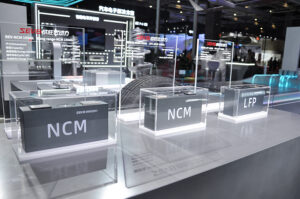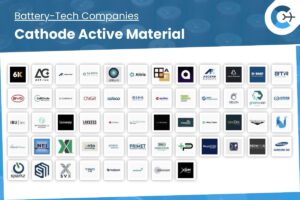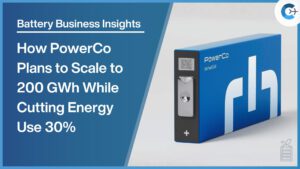Countries need to adopt more strategic critical mineral policies to secure supply chain sovereignty and support a sustainable electric vehicle (EV) future, according to Vincent Ledoux-Pedailles, Chief Commercial Officer at CarbonScape.
Biographite, produced from low-cost renewable forestry by-products through a low-temperature, carbon-sequestering process, emerges as a promising solution amid the accelerating global EV transition. Global EV sales reached 1.2 million in February 2025, a 50 percent increase from the previous year, intensifying competition for essential minerals required for this shift.
Fastmarkets reports that China currently controls 95 percent of the world’s battery-grade graphite and dominates 76 percent of the global EV market. This dominance has raised concerns in Western markets, especially after China imposed stricter export permits on certain graphite products in late 2023. It underscores China’s recognition of the strategic importance of EV supply chains and its substantial investments in the sector.
In contrast, the United States and Europe have been slower to respond, resulting in greater vulnerability to supply disruptions and tariff increases. Recent proposals, such as Donald Trump’s suggestion of a 25 percent tariff on all vehicle imports from countries including Canada, Japan, and the EU, have heightened fears of future trade and production instability. However, tariffs and trade restrictions are viewed as temporary measures rather than long-term solutions. Building a resilient EV future requires a focus on innovation, particularly through investment in next-generation materials.
Graphite production, a critical anode material in lithium-ion batteries, has traditionally relied on high-temperature, carbon-intensive processes feasible only in regions with affordable energy and established supply chains. China accounts for the majority of natural and synthetic graphite production, creating a precarious situation for Western economies. The United States is projected to experience ongoing shortages of critical minerals through 2030, with no domestic source of flake graphite expected by then, according to Benchmark Mineral Intelligence.
Biographite offers an effective alternative by providing high-grade battery graphite produced domestically at competitive prices. This technology reduces the carbon footprint of battery production by eliminating emissions from traditional graphite production and long-distance transport. Additionally, locally produced biographite lowers production costs due to the availability of cheap biomass feedstock and maintains high performance, enhancing supply chain resilience and cost efficiency.
To achieve long-term resilience, countries must invest in domestic production capacity, support innovation in cleaner processing methods, and develop infrastructure for scaling alternative materials. Initiatives like the Inflation Reduction Act in the US and EU efforts to streamline permitting and fund strategic projects are steps in the right direction. Continued investment in innovation is crucial to break free from concentrated supply chains and ensure a sustainable and resilient EV industry.
Source: The Engineer
















